This is a six part travelogue series exploring a section of Yunnan Province in China, from the autonomous prefecture of Xishuangbanna (西双版纳) to the remote village of Manwa Laozhai (曼佤老寨) and finally to the ancient tea forests of Jingmai (景迈).
- Xishuangbanna
- Village of Manwa Laozhai
- Mountains of Manwa Laozhai
- Canyons of Manwa Laozhi
- Ancient tea forests of Jingmai
- The Bulang People
Even though we only spent two nights at the village of Manwa Laozhai (曼佤老寨), we chat with A-Yun ((阿云, his moniker meaning cloud) a lot and he’s gracious (along with the hosts and the neighbors) to share a window of their lives with us. These are just some notes and observations that we made while spending time there.
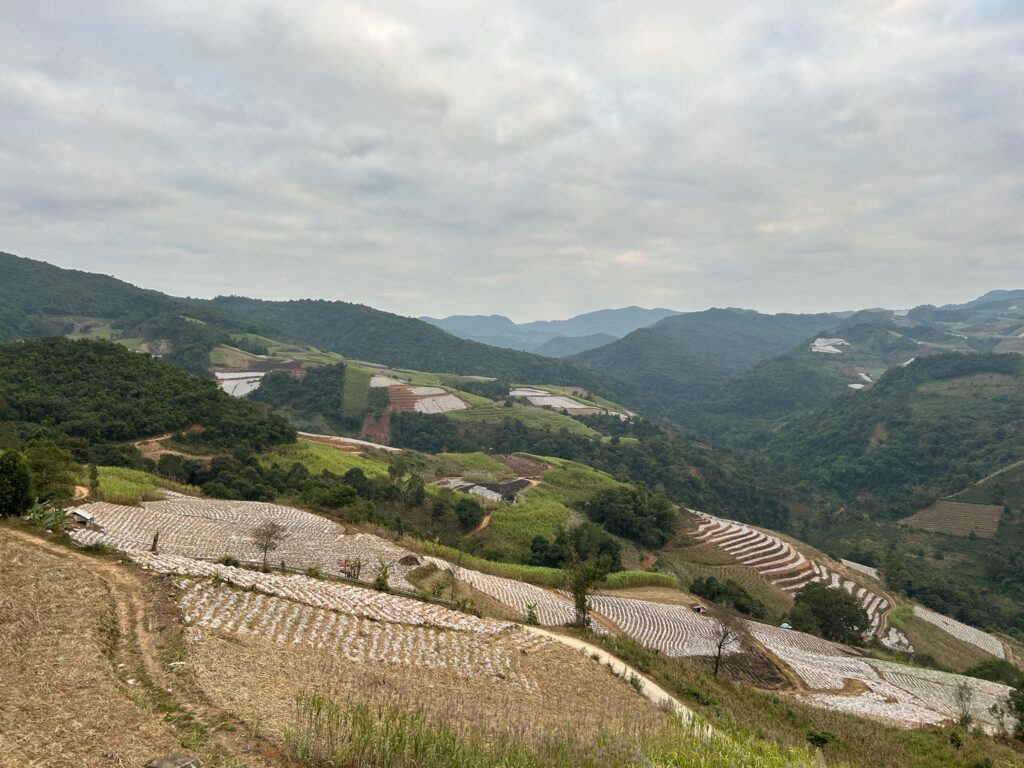
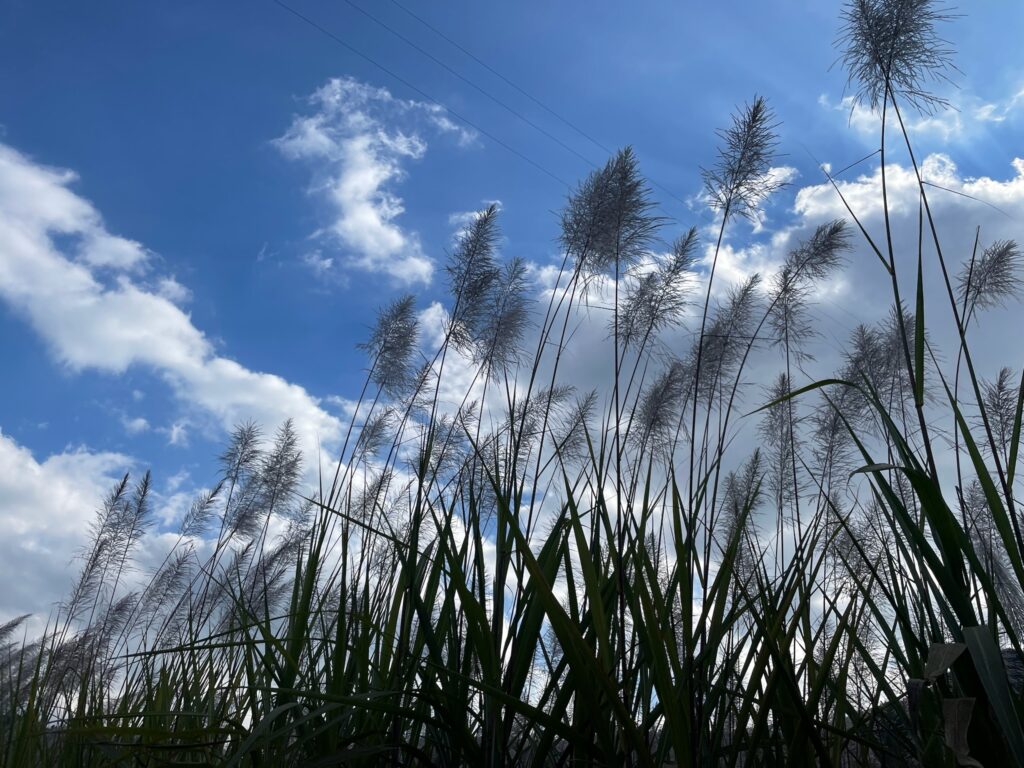
Yunnan: The Bulang People (布朗族)
The Bulang people are one of the 56 ethnic groups in China. Most of the people that we met spoke both Mandarin, and their native language Blang which is only oral – no written script exists but there are some efforts to map the sounds to Thai scripts.
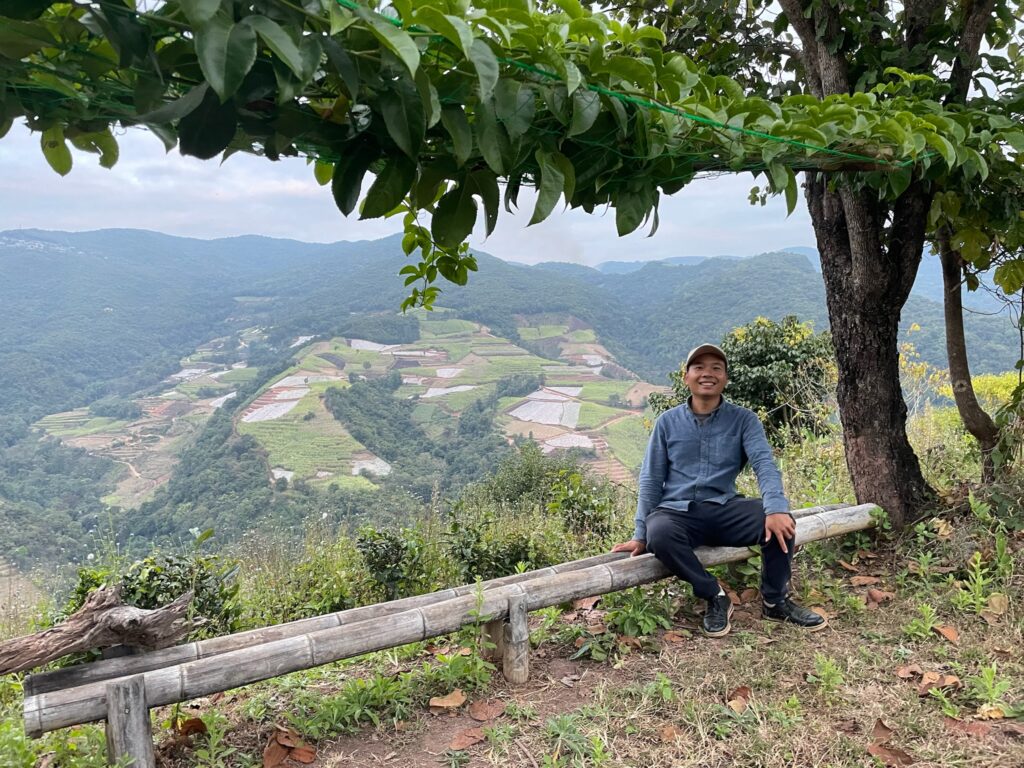
The Manwa Laozhai (曼佤老寨) settlement is in a temperate zone in the mountains close to the Tropic of Cancer. Even though elevation profiles reach up to 6,000ft there’s no snow here. The mountains also shield them from gnarly storms. Mountain springs are year-round and the forests are lush with vegetables and fruits. The 10-12 settlements of 1,000ish people in the village are all scattered around these water sources. A Shangri-La of sorts.
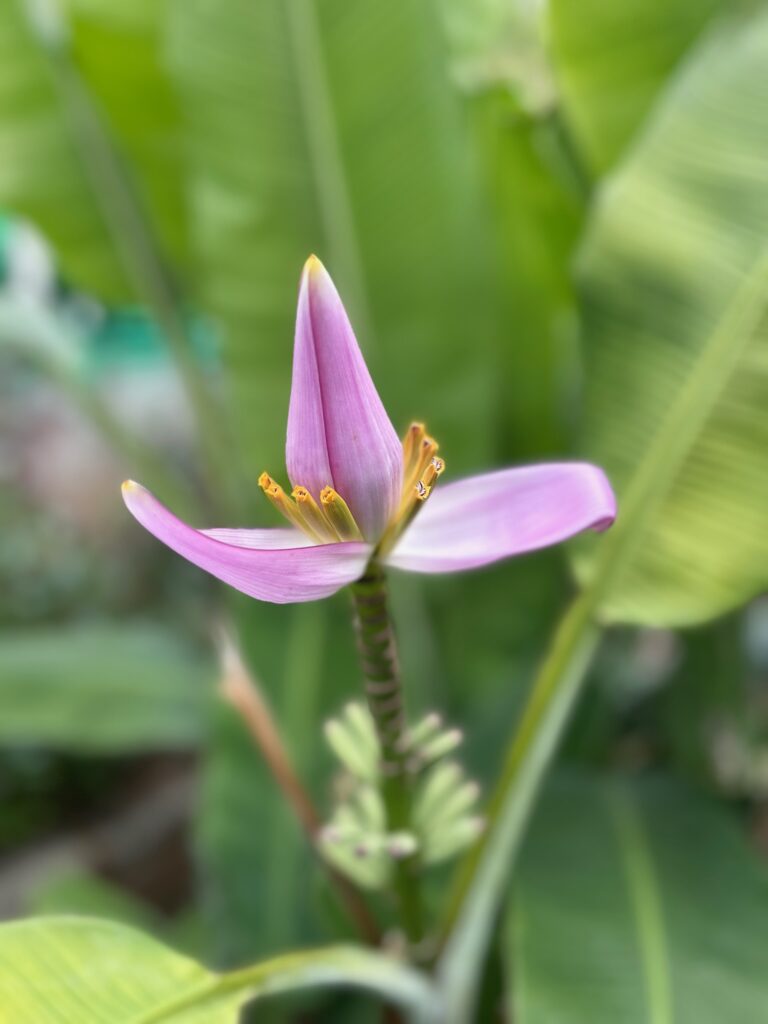
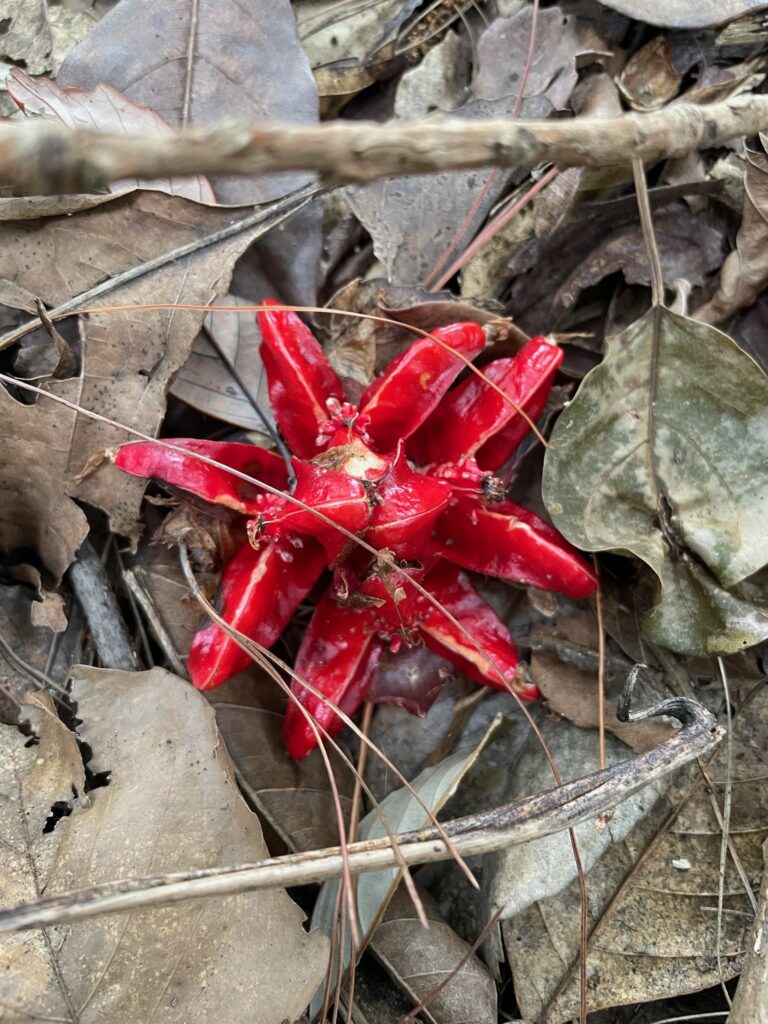
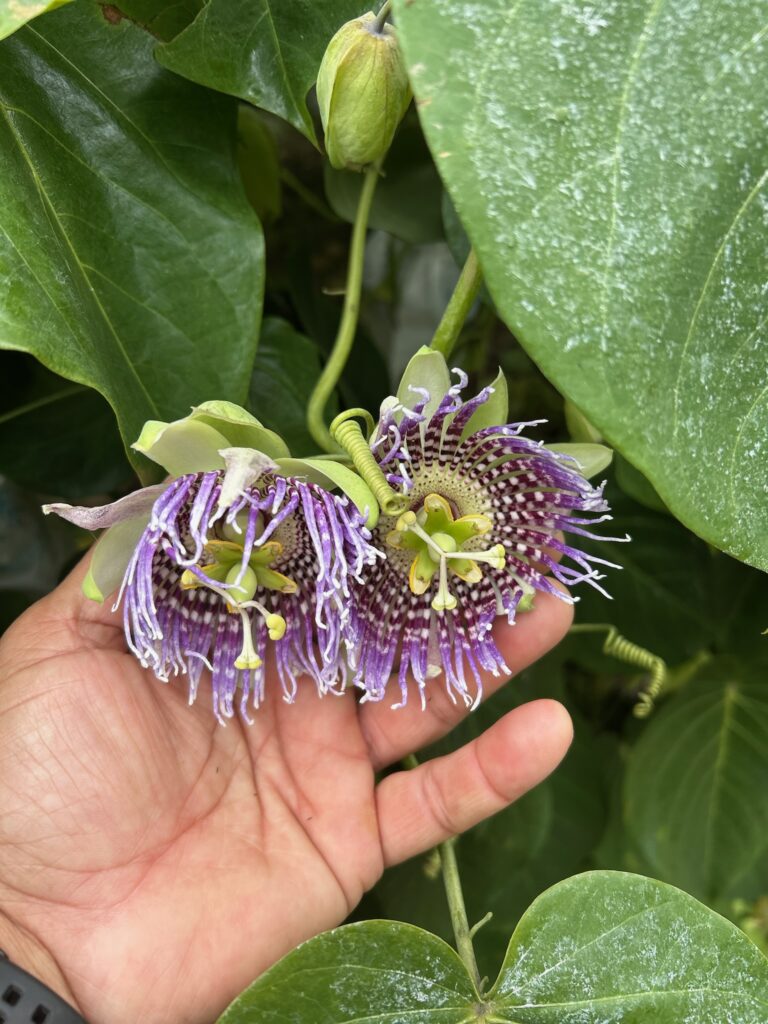
The Bulang people have this incredible symbiotic relationship with the forest, just like many other native peoples. The forest is not something that one simply takes and takes and takes from. It’s treated with respect – never touch the main trunk, never harvest flowering fruit trees (as it could help the local critters), always leave a little behind so it can regrow, etc. The forest takes care of them and in return they watch over the forest.
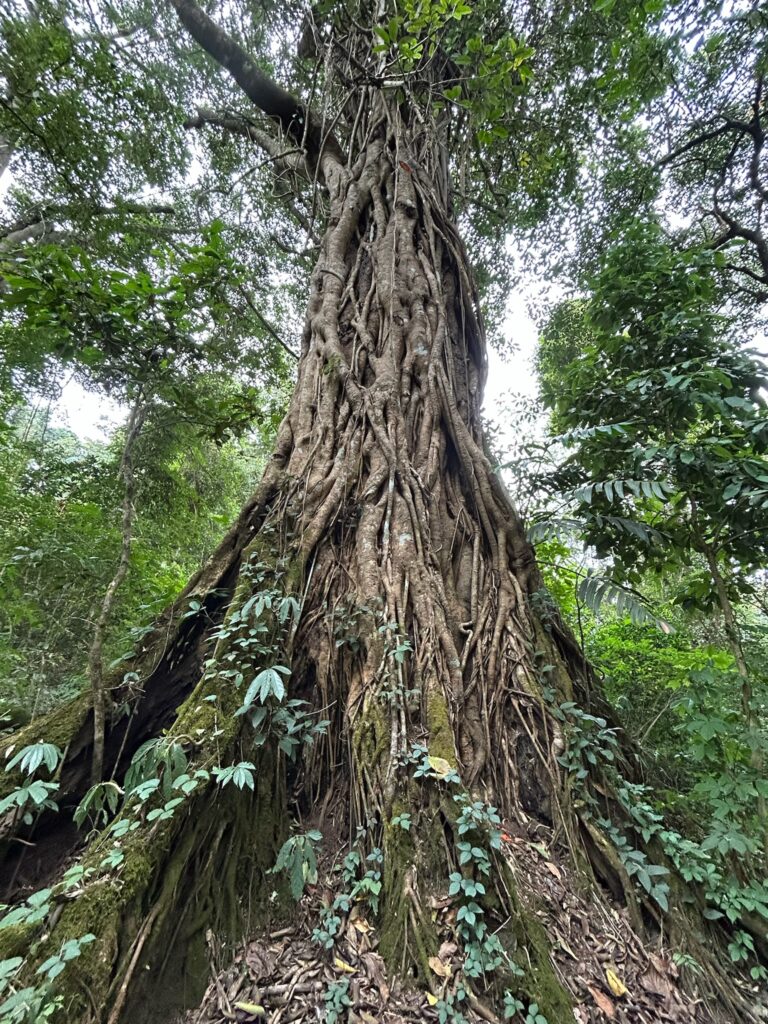
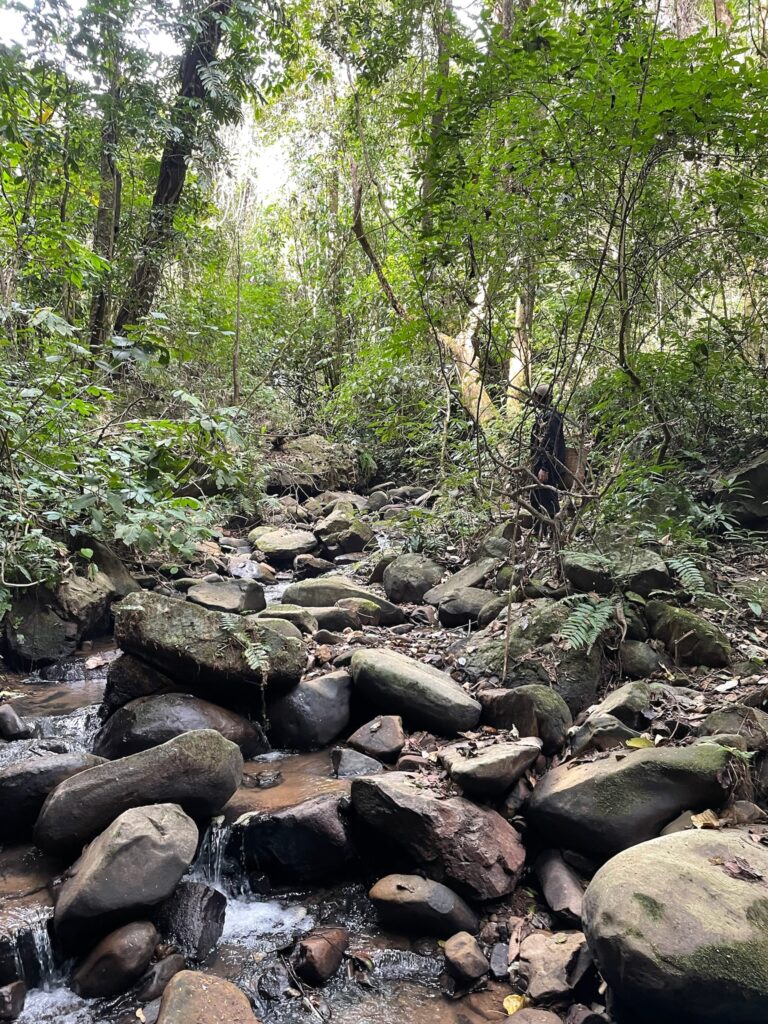
Most people live up to the late 80’s, maybe 90’s here! Watching a 75+ year young woman hauling up a 20% grade mountain to forage for tea leaves and vegetables is humbling and inspiring. The fireside banter is a nightly thing and people welcome anyone and everyone to walk in unannounced and join the fun. If you have to walk a mile up a steep hill every day to forage for medicinal herbs, I wonder if it’s the herbs or just the act of hiking that keeps one young and healthy!
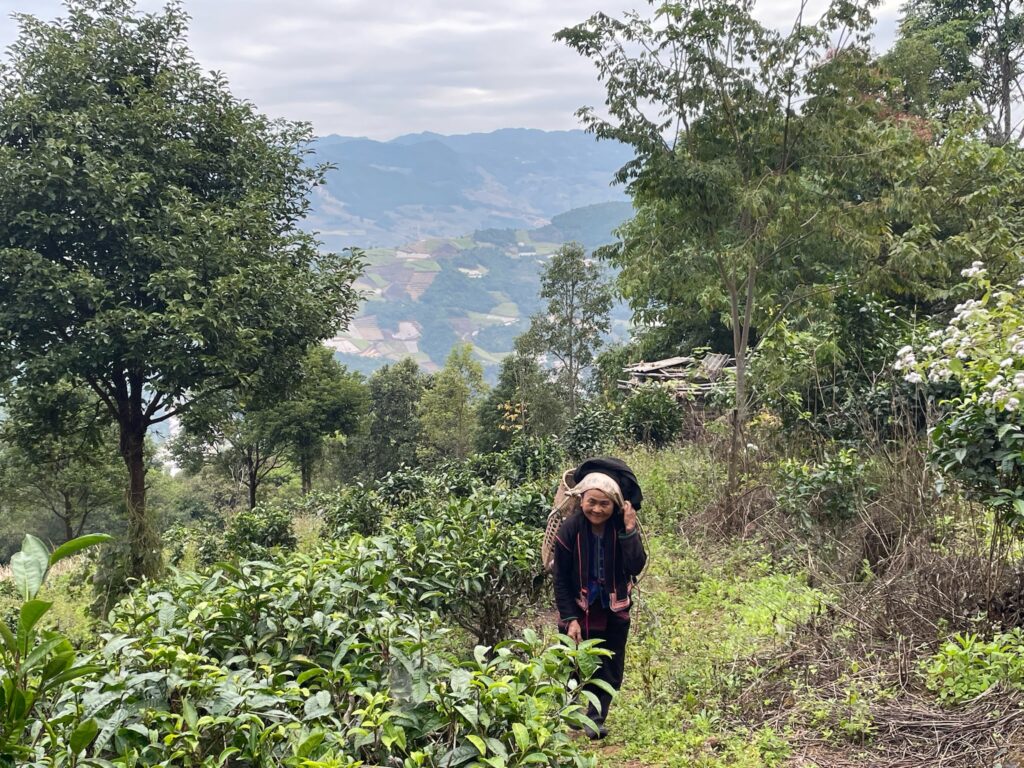
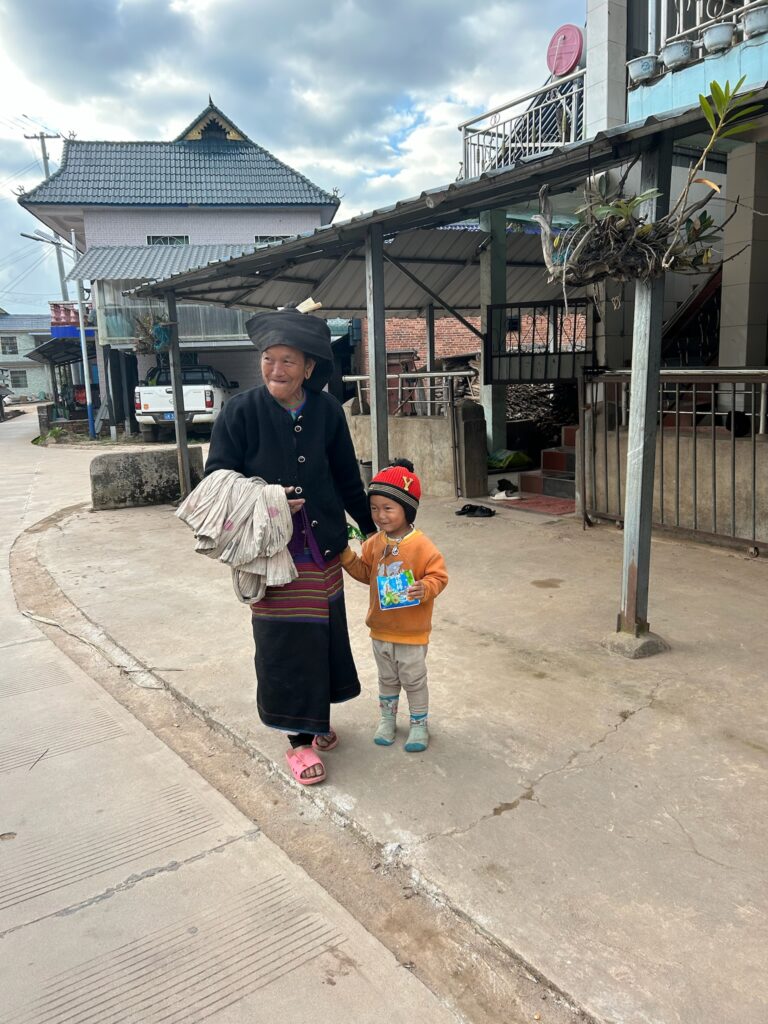
The first night we get there, we are welcomed by our neighbors who have a roaring fire going inside their house. Apparently the smoke cures the wood in the ceiling/roofing. They bring out a wok and roast some heirloom soybean seeds, offer us tea and some local fermented corn moonshine (玉米白酒). Other neighbors join us for the chatter and soon there’re stories being shared, gentle banter and laughter, old and the young, all in it for a good time. One of them tells us (in Mandarin) that he can’t fall asleep unless he’s had a chat with friends over a fire! We feel very welcome. We even get sent home with some heirloom soybean seeds and locally grown fruits!
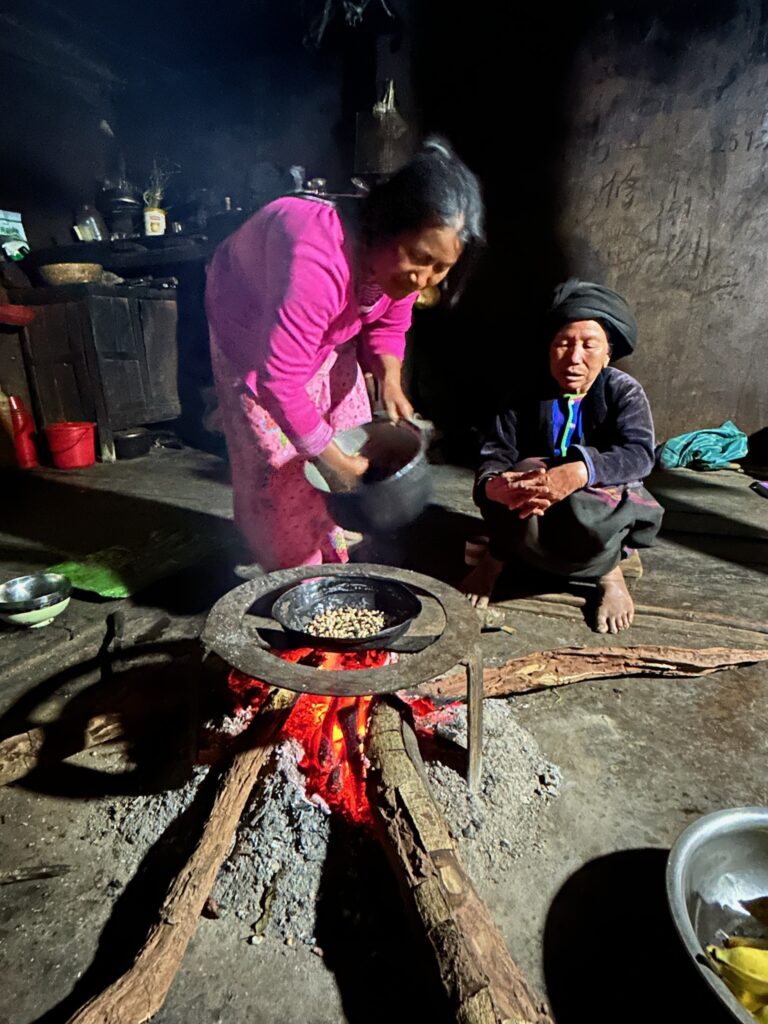
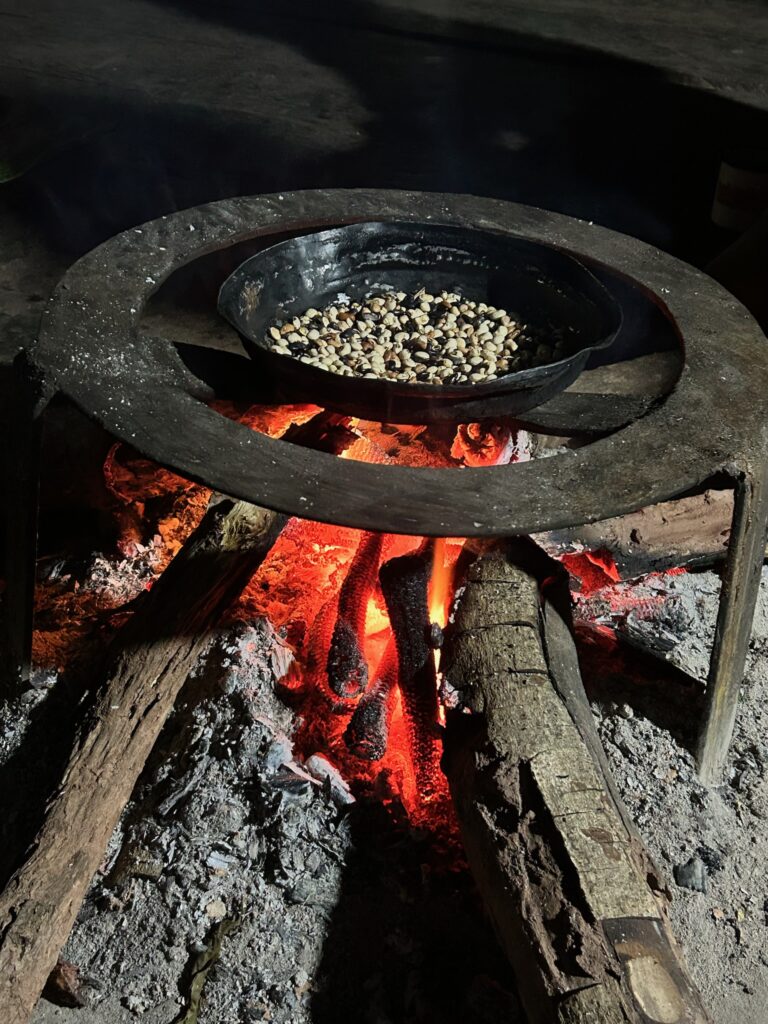
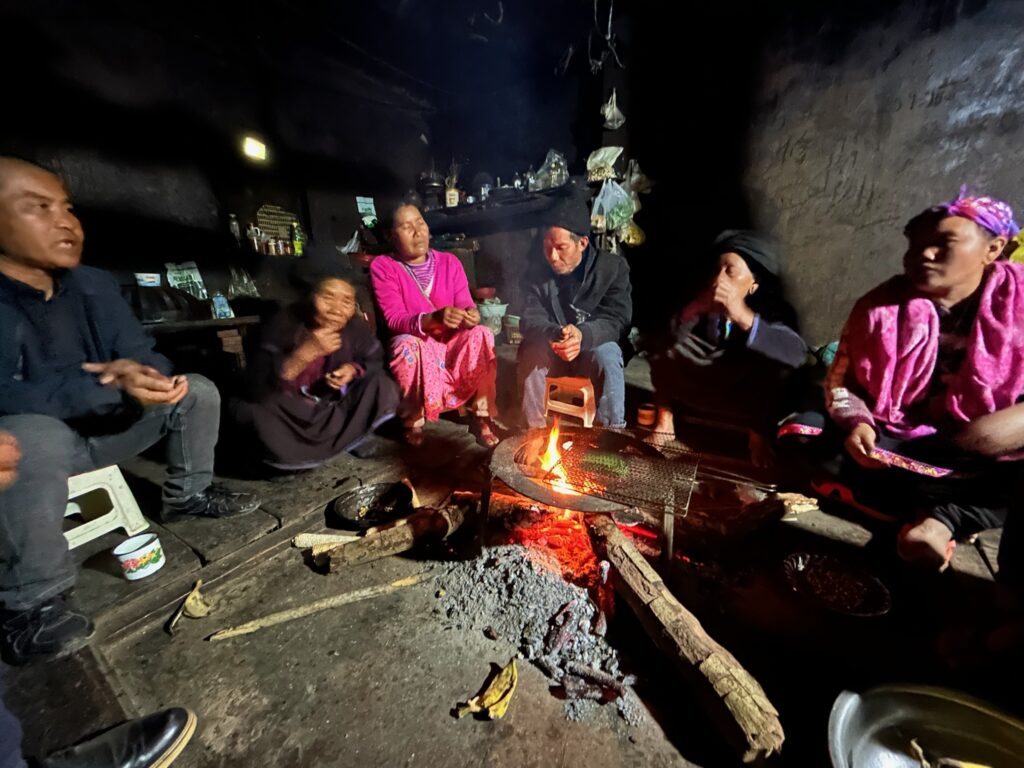
The second night, after our 7.5h mountain scramble, the host family and a few other women from the village all show up dressed in their traditional dresses. Around the fire, after roasting heirloom soybeans and drinking corn moonshine (玉米白酒), we are treated to an amazing performance, accompanied by a 4-string “guitar”. They are making a concerted effort to keep their traditions alive.
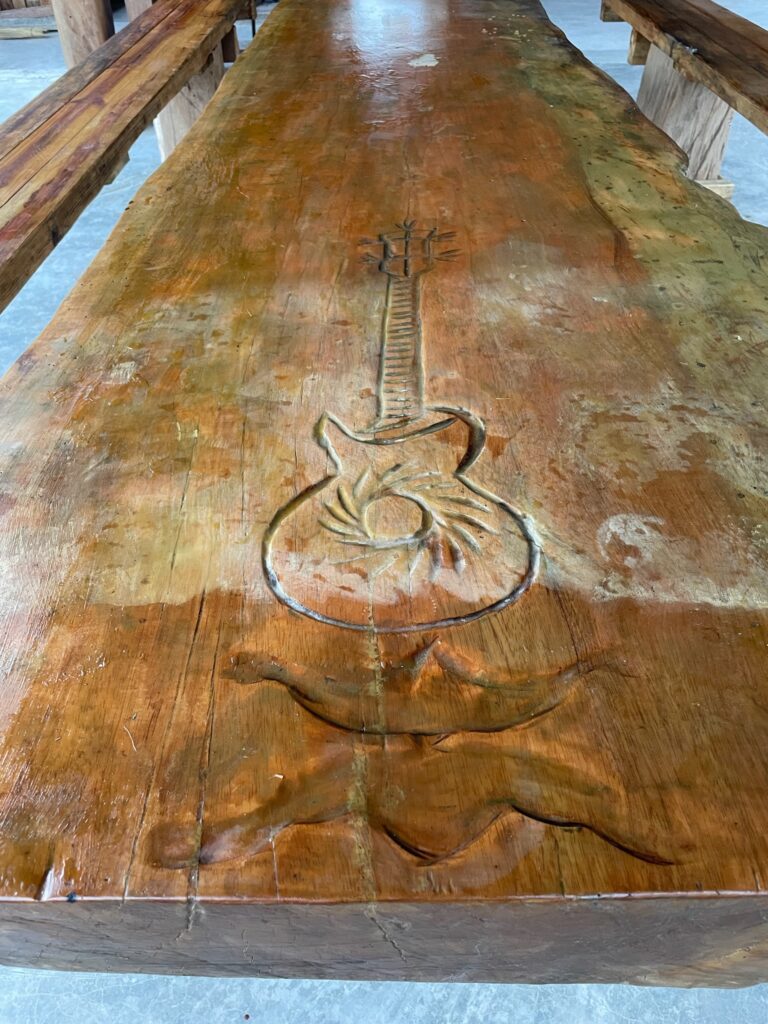
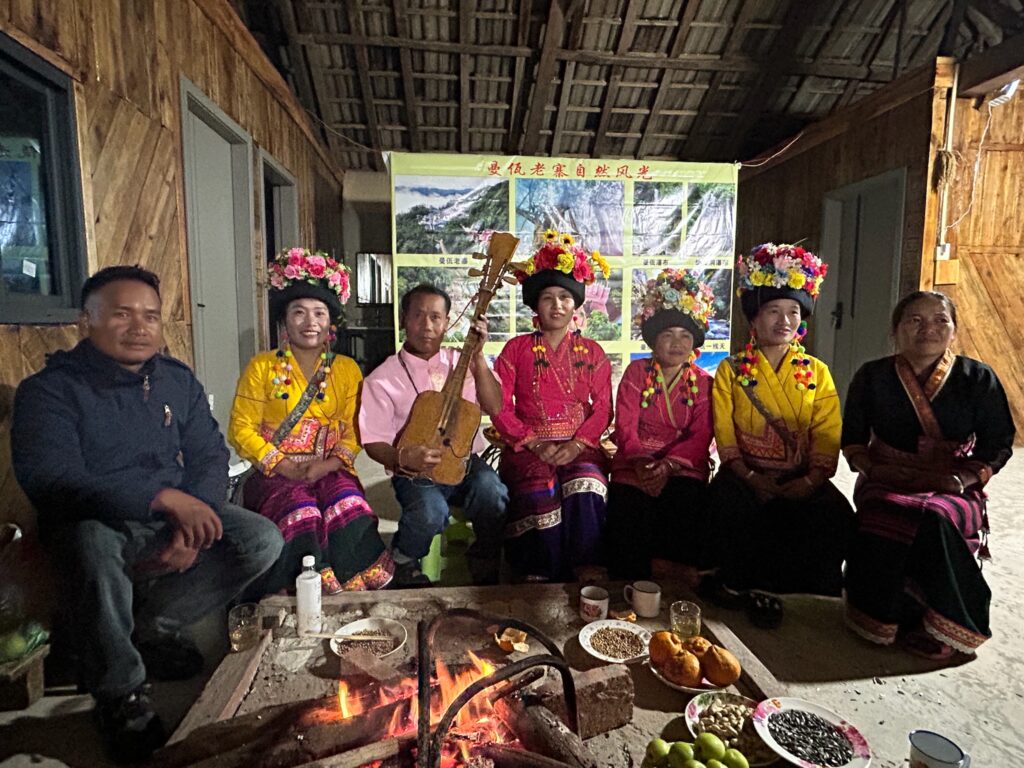
A-Yun has been rallying the village elder and the others to restore parts of the forests that have either been logged or cultivated. Every family has a tract and they get to decide what they want to plant (or not). They all seem to have surplus and always willing to share. The few cash crops they grow (sugarcane, corn and passion fruits), is plentiful to build a house, help their kids to college or have a wedding celebration – each of which is one year’s harvest. Other than that, it’s mostly subsistence living. Most of them are Buddhists and practice vegetarianism.
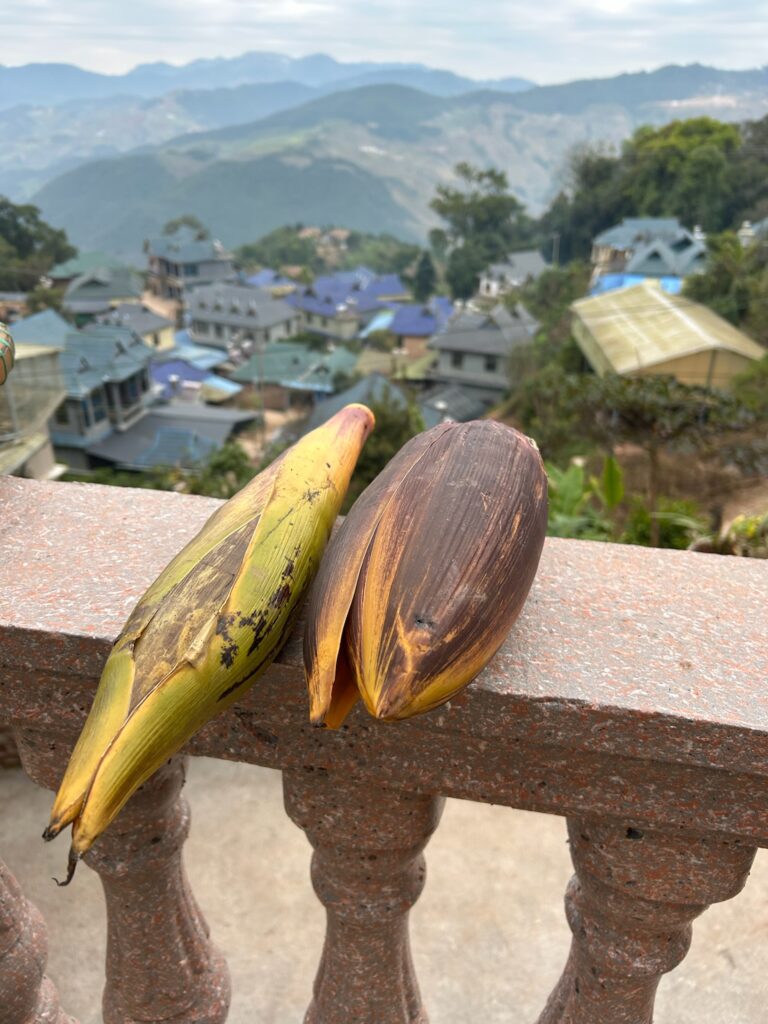
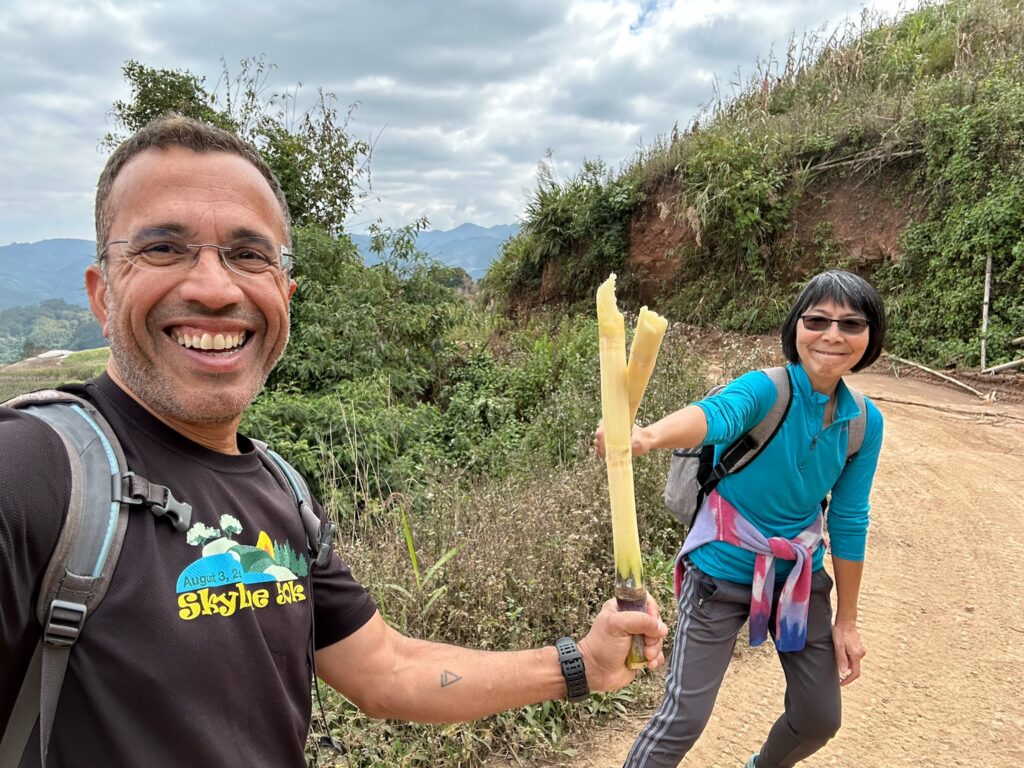
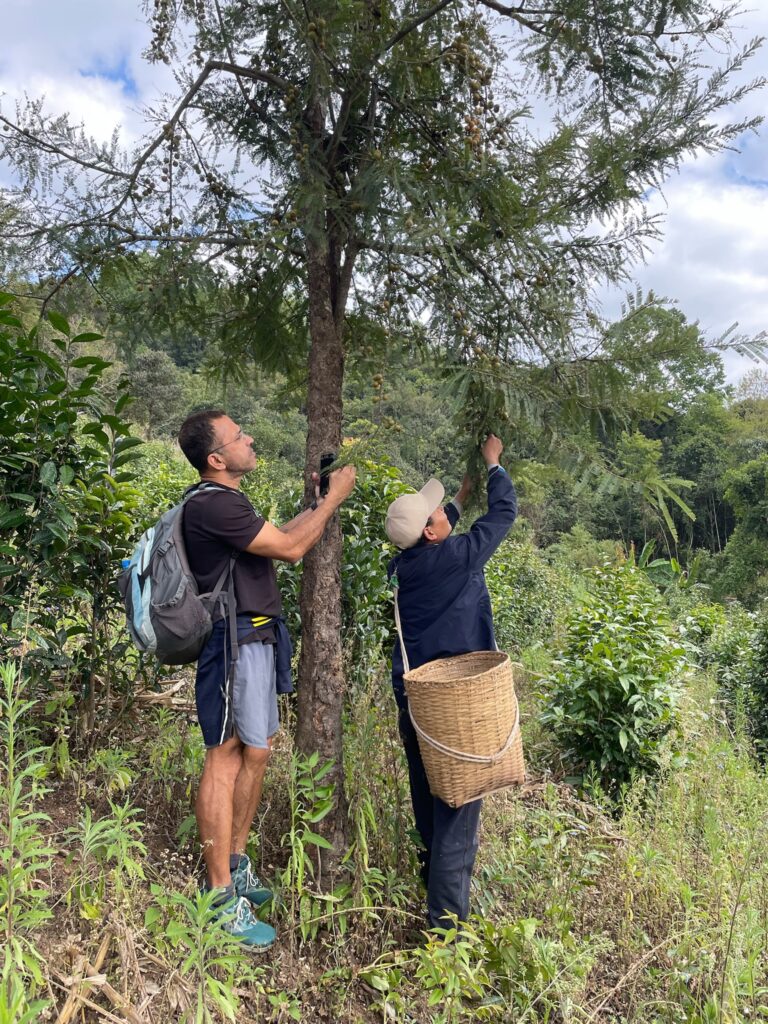
I have to admit, a not-so-small part of me wants to get a small shack here somewhere and roam the mountains. Amazing how little we really need to live a happy, healthy, fulfilling life. Often times, I think we over complicate an otherwise simple life – mortgage, rent, property tax, career, health insurance, savings, medicare, investments, medications, possessions, etc.
This is a six part travelogue series exploring a section of Yunnan Province in China, from the autonomous prefecture of Xishuangbanna (西双版纳) to the remote village of Manwa Laozhai (曼佤老寨) and finally to the ancient tea forests of Jingmai (景迈).
- Xishuangbanna
- Village of Manwa Laozhai
- Mountains of Manwa Laozhai
- Canyons of Manwa Laozhi
- Ancient tea forests of Jingmai
- The Bulang People
Absolutely N.O. spam. No more than two emails each week. Learn about injury-free running, race reports, new trail routes, awesome recipes and amazing interviews.